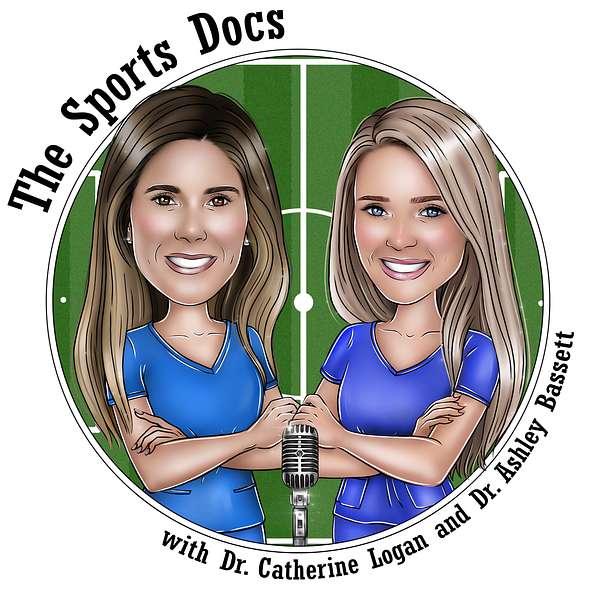
The Sports Docs Podcast
Sports medicine is a constantly evolving field, with hundreds of new articles published each month on the topic. This ever-growing wealth of information can make it challenging to stay updated on the newest approaches and techniques, and to know which data should actually change your practice. Join orthopedic surgeons, Dr. Catherine Logan and Dr. Ashley Bassett, as they chat about the most recent developments in sports medicine and dissect through all the noise.
On each episode of The Sports Docs podcast, the hosts will tackle a specific injury – from ACL tears to shoulder instability – and review the top research from various high-impact journals that month, including The American Journal of Sports Medicine, Arthroscopy: The Journal of Arthroscopic and Related Surgery, Sports Health, Journal of Shoulder and Elbow Surgeons, and more. The Sports Docs will also be joined by experts in the field of sports medicine – orthopedic surgeons, nonoperative sports medicine specialists, athletes, physical therapists, athletic trainers and others – to provide a fresh and well-rounded perspective based on their unique experiences.
The Sports Docs – Dr. Logan & Dr. Bassett – are friends & former co-residents from the Harvard Combined Orthopaedic Residency Program, who went onto esteemed sports medicine fellowships at The Steadman Clinic and The Rothman Institute, respectively. Dr. Logan practices in Denver, CO, and serves as Team Physician for Men's USA Lacrosse & as a Team Physician for U.S. Ski & Snowboard. Dr. Bassett is the director of the Women’s Sports Medicine Center at the Orthopedic Institute of New Jersey and practices across northern NJ, primarily in Morris and Sussex Counties.
Together, they will bring monthly conversations on how to care for athletes of all ages and levels of play, with a healthy mix of cutting-edge science and real-world application.
The Sports Docs Podcast
25. Dr. Clayton Nuelle: Cartilage Injuries of the Knee - Part II
We’re going to continue our discussion with Dr. Clayton Nuelle and focus on an overall treatment algorithm to approach different types of cartilage lesions and select the optimal surgical treatment for various cases.
We start with a discussion of osteochondral lesions in the pediatric population. Will Bugbee and his team at Scripps Clinic in California authored a case series titled “Osteochondral Allograft Transplantation of the Knee in the Pediatric and Adolescent Population”. They reported 90% graft survivorship at 10 years post-op. Of the five grafts that failed, four successfully underwent a salvage surgery with another osteochondral allograft. 88% of knees were rated as good to excellent with an 89% satisfaction rate. The authors deemed OCA to be a safe and effective procedure for pediatric patients with large osteochondral defects.
Then, from the December 2021 issue of Cartilage, we discuss the comprehensive review article by Andreas Gomoll and colleagues titled “Algorithm for Treatment of Focal Cartilage Defects of the Knee: Classic and New Procedures.” This paper nicely details a treatment approach based on cartilage lesion size, location and presence of underlying bone involvement.
We finish up our conversation with a focus on rehab and returning to play after cartilage restoration procedures. The last article we reference is a systematic review published in AJSM 2009 titled “Return to Sports Participation After Articular Cartilage Repair in the Knee.” Kai Mithoefer et al reported an overall return to sports rate of 73%, with the highest return rates following OATS. Yet, the highest durability to continue playing at the preinjury level of play was following ACI at 96%. There were numerous factors that impacted an athletes ability to return to sport. Younger patients, those with pure cartilage lesions rather than osteochondral lesions, duration of symptoms less than 12 months pre-op, smaller lesions under 2 cm, lesion location at the lateral femoral condyle, no prior surgeries and no concomitant procedures were all associated with increased return to play.